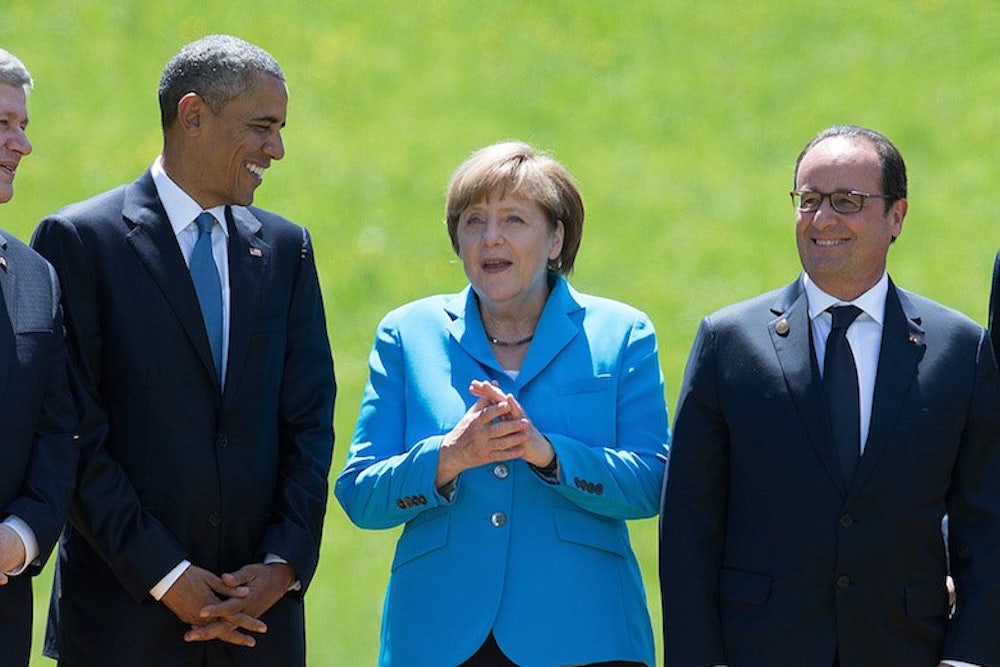World leaders at the annual G7 summit agreed on Monday to phase out fossil fuels by the end of the century. The political agreement does little more than send a signal ahead of a much-anticipated climate conference in Paris at the end of the year. The text shows that leaders remain committed to limiting global warming to under 2 degrees Celsius, even if that goal becomes more unattainable every year. But the real surprise out of the summit is that Canada and Japan even agreed to promise long-term cuts to carbon pollution.
Canada is often a major adversary in climate international talks. Though the country once had a better record than its southern neighbor, Prime Minister Stephen Harper's conservative government has since opted to exploit the nation's oil sands over clean energy development, and he's emphasized that on the world stage. Japan has also been reluctant to commit to climate targets. Since its Fukushima disaster of 2010, Japan has replaced some nuclear energy development with coal.
The first sign that the countries may be willing to change course on climate action is that the G7 commitment pledges deep greenhouse gas cuts in the next 35 years:
Mindful of this goal and considering the latest IPCC results, we emphasize that deep cuts in global greenhouse gas emissions are required with a decarbonisation of the global economy over the course of this century. Accordingly, as a common vision for a global goal of greenhouse gas emissions reductions we support sharing with all parties to the UNFCCC the upper end of the latest IPCC recommendation of 40 to 70 % reductions by 2050 compared to 2010 recognizing that this challenge can only be met by a global response. We commit to doing our part to achieve a low-carbon global economy in the long-term including developing and deploying innovative technologies striving for a transformation of the energy sectors by 2050 and invite all countries to join us in this endeavor. To this end we also commit to develop long term national low-carbon strategies.
“It’s one of my pleasant surprises, to be honest, that the two countries that have been quite hesitant agreed to some language that runs counter to what they’re doing at home right now,” Jennifer Morgan, global director of the World Resources Institute's climate program, said in a phone interview. “To me it says they have shifted their positions.”
Except Canada and Japan fought the language, meaning this small concession did not come easily. During the summit, Liz Gallagher, head of climate diplomacy at the think tank E3G, said, “We understand that Canada and Japan are pushing back against reference to the G7’s role in the decarbonization target."
An anonymous source close to the talks said, “those countries have been the most difficult on every issue on climate," per a report in the Canadian press over the weekend. "They don't want any types of targets in there, so I think they are trying to make it as vague as possible at this point.”
Political agreements like this help signal to the rest of the world that the richest countries are ready to take climate change seriously. Beyond carbon cuts, the G7 text outlined a commitment to renewable energy development in Africa and to international climate finance. Every small success this year makes it slightly more possible that a strong agreement could come out of Paris.
